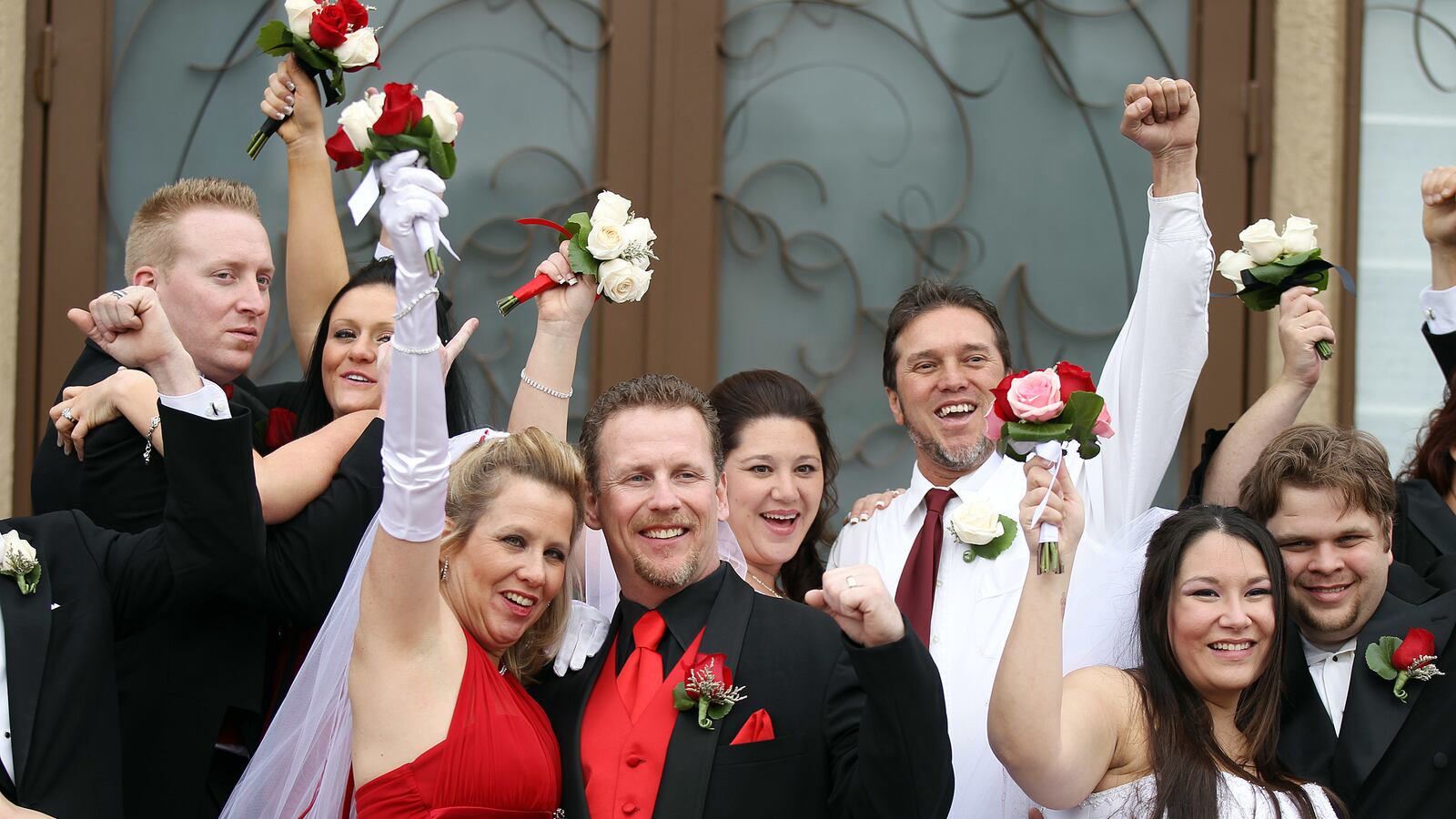My latest at CNN: to rebuild the middle class, restore marriage.
The long debate on same-sex marriage is coming to an end. A plurality of Americans now support same-sex marriage; the figure is 63% among voters under 30. The rest is just a matter of time.
The end of the same-sex marriage debate does not, however, settle the problem of marriage in America. Not remotely. Among the 95% to 97% of Americans who are not gay, the institution of marriage continues to weaken -- with ominous consequences for the next generation.
About 40% of all the babies born in the United States are born to unmarried women. Just about everybody agrees that this is a worrying development.
As candidate Barack Obama told a Chicago church in 2008:
"(C)hildren who grow up without a father are five times more likely to live in poverty and commit crime, nine times more likely to drop out of schools, and 20 times more likely to end up in prison. They are more likely to have behavioral problems, or run away from home or become teenage parents themselves. And the foundations of our community are weaker because of it."
Of course there are exceptions to every rule. On average, however, children born to unmarried women do worse in all kinds of important ways compared to children born to married couples. They are less likely to complete their schooling, more likely to get in trouble with the law, more likely to have children out of marriage themselves, less likely to achieve upward mobility. The data behind these claims are overwhelming, and not seriously contested by any social scientist -- although every once in a while, somebody will publish an article "in defense of single motherhood" that brusquely dismisses the evidence with Stephen Colbert style elan: " I am not a huge believer in studies."
For those who do believe in social science, the question arises: what to do?
And here's where the looming end of the debate over same-sex marriage offers real hope.
Last week, the Institute for American Values published a major statement in The New York Times. Signed by 74 luminaries of widely diverse political points of view, it called for a "new conversation about marriage."
"The current question is, Should gays marry? The new question is, Who among us, gay or straight, wants to strengthen marriage?" the statement asked.
The Institute for American Values is known as a conservative group. In recent years, its leader, David Blankenhorn, has reconsidered his past opposition to same-sex marriage.
This rethinking has cost IAV and Blankenhorn dearly. Board members have resigned, funding sources have been cut. Yet at breakfast two weeks ago in New York City, Blankenhorn was undaunted. The challenges that led him into the marriage debate two decades ago have only become more urgent.
As the IAV writes: "(M)arriage trends in middle America, particularly among the nearly 60 percent of Americans who've graduated from high school but do not have a four-year college degree, are more and more resembling the historic marriage trends in poor and low-income America." In other words, the middle-class family increasingly looks like the lower-class family -- at an economic moment when it is very easy to tumble out of the middle class and increasingly difficult to climb into it.





